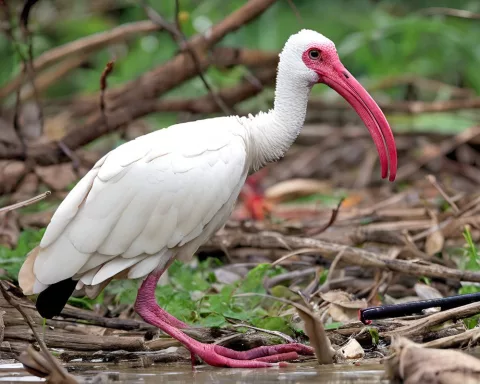The government will invest R3.5 billion to introduce new vaccines, including a derivative vaccine and a combination vaccine, while COVID-19 vaccinations will now be integrated into routine primary health care services. South Africa’s National Health Council Meeting covered various topics, including the introduction of new vaccines, integration of COVID-19 vaccinations, online birth registrations, cost containment measures, audit outcomes, medico-legal issues, avian influenza infection risk, and nurses’ uniforms and allowances. Online birth registrations have been expanded, and nurses will receive a once-off uniform allowance of R3153.
What were the key takeaways from South Africa’s National Health Council Meeting?
The meeting covered the introduction of new vaccines, integration of COVID-19 vaccinations, online birth registrations, cost containment measures, audit outcomes, medico-legal issues, avian influenza infection risk, and nurses’ uniforms and allowances. The government will invest R3.5 billion to introduce new vaccines, including a derivative vaccine and a combination vaccine. COVID-19 vaccinations will now be integrated into routine primary health care services. Online birth registrations have been expanded, and cost containment measures are being implemented due to budget cuts. Audit outcomes showed improvement, while medico-legal issues continue to impact budgets and healthcare provisions. The risk of avian influenza infection on humans is present, but poultry products are safe. Nurses will receive a once-off uniform allowance of R3153.
New Vaccines and COVID-19 Vaccination Integration
Health Minister Dr. Joe Phaahla and provincial health MECs convened the National Health Council meeting in Eco Park, Centurion, to discuss significant advancements and challenges faced by the nation’s healthcare system. Among the meeting’s key takeaways were the introduction of new vaccines, the integration of COVID-19 vaccinations into primary health care services, the expansion of online birth registrations, cost containment measures, improvements in audit outcomes, addressing medico-legal issues, and the risk of avian influenza infection on humans.
The South African government will invest R3.5 billion to introduce new vaccines to the Expanded Program on Immunization schedule, aiming to reduce vaccine-preventable disease outbreaks. A new derivative vaccine will be introduced to prevent whooping cough, tetanus, and diphtheria, while a combination vaccine will protect young girls against measles and rubella. These new vaccines, recommended by the National Advisory Group on Immunization, will be implemented from January 2024.
The Department of Health will transition from a mass COVID-19 vaccination campaign to integrating the vaccination process into routine primary health care services, in line with World Health Organization recommendations. As the current stock of COVID-19 vaccines expires soon, the department will procure new vaccines for public sector administration and work with the private sector to ensure their availability.
Expansion of Online Birth Registrations and Cost Containment Measures
To register births on time, the Departments of Health and Home Affairs collaborated and expanded the Online Birth Registration system in 161 health facilities, making it possible to issue birth certificates on the spot. The Department of Home Affairs plans to expand the Online Registration System by an additional 91 health facilities throughout the 2023/24 financial year.
In response to budget reductions announced by the National Treasury, the health sector must navigate through cost containment measures that inevitably impact future planning, programs, and healthcare service delivery. Continuous discussions between the health sector and the National Treasury aim to find means to mitigate the effects of budget cuts.
Audit Outcomes, Medico-Legal Issues, and Avian Influenza Risk
Audit outcomes showed notable improvement in the health sector’s performance against targets for the previous financial year. While high-quality healthcare provision is essential, the National Health Department received an unqualified audit for the financial year 2022/23. As the sector pushes towards a clean audit, the Auditor General raised concerns about the Eastern Cape, Northern Cape, and Free State provinces, which have regressed in the past two financial years.
The medico-legal crisis continues to challenge provincial departments as it impacts budgets and cripples healthcare provisions. While the South African Law Commission is finalizing its report for the government, the implementation of the Medico-Legal Declaration Action Plan is urgent. The plan entails patient safety and administration to enforce medical accountability. Additionally, the State Attorney will establish specialized Medico-Legal Units in each province.
The risk of avian influenza infection on humans has been a rising concern since the disease outbreak affected multiple poultry farms. However, according to the National Institute for Communicable Diseases, poultry products are safe for human consumption. The public is advised to seek medical attention if they suspect avian influenza infection, and clinicians should contact the NICD to discuss suspected cases.
Nurses’ Uniforms and Allowances
Finally, the issue of nurses’ uniforms and allowances was addressed at the meeting, clarifying the dress code’s purpose as an administrative instrument aligned with the South African Nursing Council’s regulations. According to Resolution 1 of 2023, a once-off uniform allowance of R3153 should be paid to nurses by November 30, 2023.
What was discussed at South Africa’s National Health Council Meeting?
The National Health Council Meeting covered various topics, including the introduction of new vaccines, integration of COVID-19 vaccinations, online birth registrations, cost containment measures, audit outcomes, medico-legal issues, avian influenza infection risk, and nurses’ uniforms and allowances.
How much will the South African government invest in introducing new vaccines?
The government will invest R3.5 billion to introduce new vaccines, including a derivative vaccine and a combination vaccine.
What is the purpose of the new vaccines?
The new vaccines aim to reduce vaccine-preventable disease outbreaks. A derivative vaccine will be introduced to prevent whooping cough, tetanus, and diphtheria, while a combination vaccine will protect young girls against measles and rubella.
When will the new vaccines be implemented?
The new vaccines will be implemented from January 2024.
How will COVID-19 vaccinations be integrated into primary health care services?
The Department of Health will transition from a mass COVID-19 vaccination campaign to integrating the vaccination process into routine primary health care services, in line with World Health Organization recommendations.
How has online birth registration been expanded?
To register births on time, the Departments of Health and Home Affairs collaborated and expanded the online birth registration system in 161 health facilities, making it possible to issue birth certificates on the spot. The Department of Home Affairs plans to expand the online registration system by an additional 91 health facilities throughout the 2023/24 financial year.
What was the outcome of the audit of the health sector’s performance against targets for the previous financial year?
Audit outcomes showed notable improvement in the health sector’s performance against targets for the previous financial year. However, the National Health Department received an unqualified audit for the financial year 2022/23.
What is the medico-legal crisis, and how is it being addressed?
The medico-legal crisis continues to challenge provincial departments as it impacts budgets and cripples healthcare provisions. The implementation of the Medico-Legal Declaration Action Plan is urgent. The plan entails patient safety and administration to enforce medical accountability, and the State Attorney will establish specialized Medico-Legal Units in each province.
What was the outcome of the discussion about nurses’ uniforms and allowances?
According to Resolution 1 of 2023, a once-off uniform allowance of R3153 should be paid to nurses by November 30, 2023. The dress code’s purpose was clarified as an administrative instrument aligned with the South African Nursing Council’s regulations.












